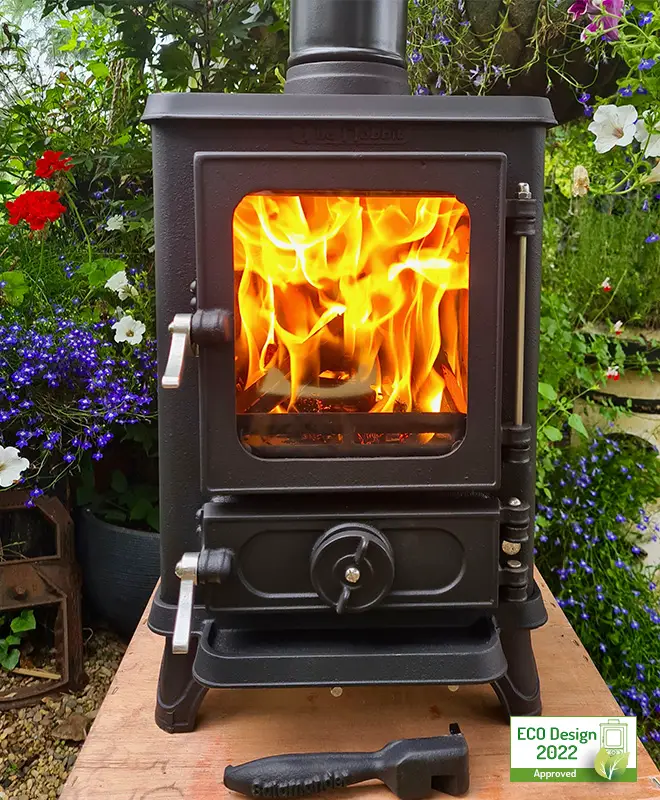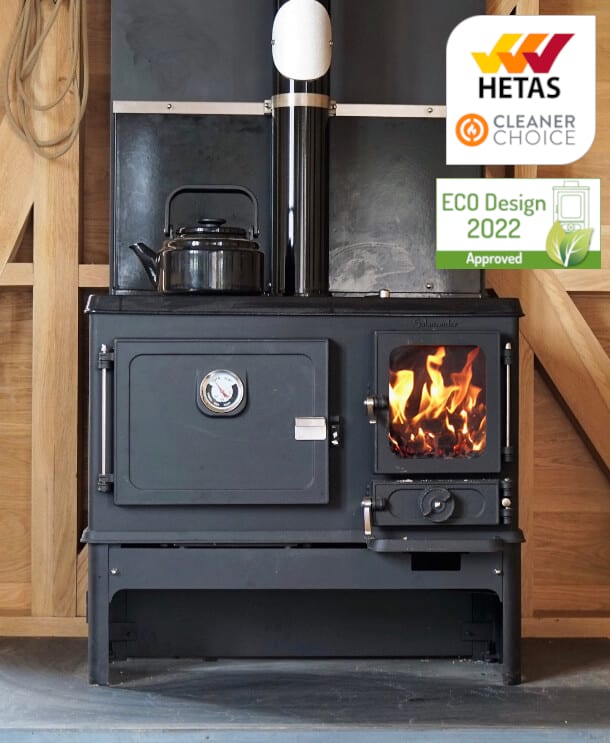Multi-fuel stoves are versatile and efficient but pricier, while wood burners are eco-friendly and cost-effective but limited to wood burning. Both options have distinct advantages depending on individual preferences and needs when it comes to heating and fuel requirements.
Multi-fuel stoves offer flexibility with various fuel options, including coal, wood, and smokeless fuels, making them ideal for users seeking versatility and efficiency in heating. On the other hand, wood burners provide a more environmentally friendly and budget-friendly heating solution, relying solely on wood as a fuel source.
Understanding the key differences between multi-fuel stoves and wood burners is crucial in selecting the right option that aligns with your heating needs and preferences. By weighing the pros and cons of each type of stove, homeowners can make an informed decision based on factors such as fuel availability, cost efficiency, environmental impact, and heating requirements. Whether prioritizing versatility or sustainability, choosing between a multi-fuel stove and a wood burner ultimately depends on individual preferences and heating needs.


Credit: m.youtube.com
Heating Efficiency
When it comes to heating efficiency, multi-fuel stoves offer more versatility and efficiency compared to wood burners. While wood burners are environmentally friendly and less expensive, they are limited to burning only wood. On the other hand, multi-fuel stoves can burn various types of fuel, providing a more versatile heating option.
Comparison Of Heating Performance
When it comes to heating efficiency, both multi-fuel stoves and wood burners have their advantages. Understanding the heating performance of each can help you make an informed decision for your home. – Wood burners are known for their ability to provide a cozy, traditional warmth. They efficiently burn wood logs, producing a radiant heat that quickly warms up the surrounding area. The heat from a wood burner tends to be intense and focused, making it perfect for heating up small to medium-sized spaces. – On the other hand, multi-fuel stoves offer versatility in terms of the types of fuel they can burn. In addition to wood logs, multi-fuel stoves can also burn smokeless mineral fuels, such as coal or peat. This versatility allows for a longer burn time and more consistent heat output. Multi-fuel stoves are particularly beneficial in colder climates or for larger spaces that require continuous heating.Versatility Of Fuel Types
Multi-fuel stoves excel when it comes to the range of fuel types they can accommodate. Here’s a closer look at the versatility of fuel options for multi-fuel stoves: 1. Wood Logs: Just like a dedicated wood burner, multi-fuel stoves can burn wood logs. This provides a traditional and environmentally friendly option for heating your home. 2. Smokeless Mineral Fuels: Multi-fuel stoves have the added advantage of being able to burn smokeless mineral fuels when required. This makes them suitable for urban areas where wood burning may be restricted. 3. Other Fuels: Depending on the specific model and design, some multi-fuel stoves may also allow the use of other fuels like peat or biomass. Always check the manufacturer’s guidelines to ensure compatibility with these alternative fuel types. By having the flexibility to burn various fuels, multi-fuel stoves offer a wider range of heating options compared to wood burners. This versatility can be especially useful during colder months or when alternative fuel options are more accessible.| Wood Burners | Multi Fuel Stoves | |
|---|---|---|
| Primary Fuel | Wood Logs | Wood Logs |
| Additional Fuel | N/A | Smokeless Mineral Fuels, Peat, Biomass (Varies) |
| Heating Performance | Intense and focused heat | Longer burn time, consistent heat output |
Cost And Maintenance
When comparing Multi Fuel Stove Vs Wood Burner, understanding the costs and maintenance involved is crucial. Let’s delve into the aspects of Initial Investment and Long-term Maintenance.
Initial Investment
The initial cost of a multi-fuel stove is slightly higher than a wood burner due to its versatility with different fuel types. On the other hand, wood burners are typically less expensive but limited to burning wood only.
Long-term Maintenance
- Wood Burner: Simple maintenance with regular cleaning and chimney inspections.
- Multi Fuel Stove: Requires diligent upkeep for various fuel types, can be costlier in the long run.
Aesthetics And Ambiance
When deciding between a multi fuel stove and a wood burner, considering aesthetics and ambiance is crucial. These elements play a significant role in creating a warm and inviting atmosphere within any living space. Let’s delve into the visual appeal and atmospheric experience associated with both options.
Visual Appeal
The visual appeal of a stove or burner can greatly enhance the overall look and feel of a room. Both multi fuel stoves and wood burners come in a variety of designs, from traditional to modern, allowing homeowners to choose a style that complements their decor. The flickering flame and glowing embers of a wood burner create a captivating focal point, while multi fuel stoves offer a similar visual charm, often with a sleeker and more contemporary appearance.
Atmospheric Experience
The atmospheric experience created by a stove or burner is equally important. Wood burners evoke a nostalgic and cozy ambiance, with the crackling and aroma of burning wood adding to the sensory experience. On the other hand, multi fuel stoves, with their versatility in burning various fuels, provide a convenient way to maintain a consistent and adjustable heat output, contributing to a comfortable and cozy atmosphere.

Credit: salamanderstoves.com
Considerations For Homeowners
When choosing between a multi-fuel stove and a wood burner, homeowners need to consider fuel versatility and efficiency. While wood burners are eco-friendly and cost-effective, multi-fuel stoves offer more flexibility and efficiency, albeit at a higher price point. Make the right choice based on your heating needs and budget.
Heating An Entire House
Modern wood-burning stoves have the ability to heat an entire house efficiently when used correctly. The powerful heating source they provide makes them a popular choice among homeowners looking to stay warm during the colder months.
Conversion Options
Are you wondering if you can convert your wood burner into a multi-fuel stove? The answer depends on the model you have. Some wood burning appliances can be converted to solid fuel appliances with the use of an optional multi-fuel kit. To confirm if this is possible, refer to your instruction manual as not all models have this option.
On the other hand, multi-fuel stoves offer fuel flexibility, allowing you to burn different types of fuels. They can burn logs, similar to dedicated wood burning stoves, but also have the capability to burn smokeless mineral fuels when needed. This versatility makes multi-fuel stoves a popular choice for homeowners.
Below is a comparison table highlighting the key differences between wood burning stoves and multi-fuel stoves:
| Wood Burning Stoves | Multi-Fuel Stoves |
|---|---|
| Environmentally friendly | Versatile and efficient |
| Typically less expensive | May require multiple types of fuel |
| Can only burn wood | Can burn logs and smokeless mineral fuels |
Consider your heating needs and budget when deciding between a wood burning stove and a multi-fuel stove. If you prioritize eco-friendliness and cost-effectiveness, a wood burning stove might be the better choice. However, if you value versatility and efficiency, a multi-fuel stove would be a more suitable option.
Ultimately, both options have their advantages and it’s important to choose the one that best fits your specific requirements and preferences.

Credit: www.directstoves.com
Frequently Asked Questions Of Multi Fuel Stove Vs Wood Burner
Is A Multi-fuel Stove Better Than A Wood Burning Stove?
A multi-fuel stove offers versatility and efficiency but can entail higher costs and require multiple fuel types. Wood burning stoves are environmentally friendly and economical but limited to burning wood.
Can You Burn Just Wood In A Multi-fuel Stove?
Yes, multi-fuel stoves can burn just wood, along with other types of fuel for flexibility.
Can You Convert A Wood Burner To A Multi-fuel Stove?
Yes, it is possible to convert a wood burner to a multi-fuel stove by using an optional multi-fuel kit. Check your instruction manual to see if your model has this feature.
Can A Multi-fuel Stove Heat A House?
A multi-fuel stove can heat a house effectively and efficiently, providing an excellent heating source for homeowners.
Q: Is A Multi-fuel Stove Better Than A Wood Burning Stove?
A: Wood burning stoves are more environmentally friendly and less expensive, but multi-fuel stoves are more versatile and efficient.
Conclusion
Deciding between a multi-fuel stove and a wood burner depends on your specific needs. While a wood burner is eco-friendly and cost-effective, multi-fuel stoves offer versatility. Consider factors like fuel availability and convenience when making your choice. Both options have their pros and cons, so assess your requirements before making a decision.